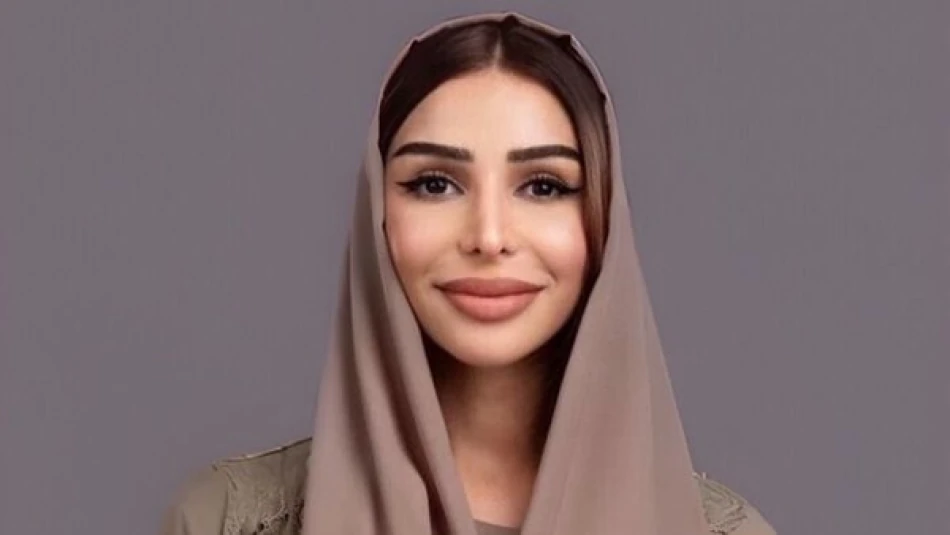
Emirati Women's Day Celebrates Remarkable Achievements and a Brighter Future
UAE Women Redefine Global Diplomacy as Nation Celebrates Historic Milestones
The United Arab Emirates marks two pivotal anniversaries this year—the 10th Emirati Women's Day and the 50th anniversary of the General Women's Union—as female leaders increasingly shape international discourse from climate negotiations to global tourism governance. This transformation from a society where women's professional participation was limited to one where they lead major UN agencies signals a broader shift in Middle Eastern diplomacy and gender representation on the world stage.
From Impossible Dreams to Global Leadership
Afra Mahsh Al Hameli, Director of Strategic Communication at the UAE Ministry of Foreign Affairs, captured the magnitude of this transformation: "Half a century ago, it would have been difficult to imagine that an Emirati woman would become a space pioneer, minister, or prominent innovator across various fields."
This evolution reflects more than individual achievement—it represents a systematic approach to women's empowerment that has positioned the UAE as a regional leader in gender equality. The August 28th celebration serves as both commemoration and strategic positioning, demonstrating the nation's commitment to leveraging human capital in its diplomatic and economic ambitions.
Strategic Appointments Signal Diplomatic Ambitions
Breaking International Glass Ceilings
Recent high-profile appointments underscore the UAE's calculated approach to soft power projection. Sheikha Nasser Al Nuwais's election as Secretary-General of the World Tourism Organization marks a historic first—no woman has held this position since the organization's establishment in 1975. This appointment positions the UAE at the center of global tourism recovery discussions, particularly significant as the sector rebounds from pandemic disruptions.
The timing aligns with the UAE's broader economic diversification strategy, where tourism plays an increasingly vital role beyond oil revenues. Having an Emirati woman lead the world's premier tourism body provides the nation with unprecedented influence over global travel policies and sustainable tourism frameworks.
Institutional Innovation at Home
The appointment of Sana bint Mohammed Suhail as Minister of Family for the newly established Ministry of Family demonstrates the UAE's recognition that social cohesion underpins economic competitiveness. This ministerial creation reflects lessons learned from other Gulf states and Asian economies, where family-centric policies have supported rapid development while maintaining social stability.
STEM Leadership Drives Economic Transformation
UAE women now dominate graduation rates in Science, Technology, Engineering, and Mathematics fields—a statistic that positions the nation favorably in the global competition for knowledge economy leadership. This educational achievement translates into practical advantages: female-led innovation contributes directly to the UAE's Vision 2071 goals of becoming the world's best country by its centennial.
The emphasis on STEM education for women also addresses a critical challenge facing developed economies—talent shortages in technology sectors. By maximizing female participation, the UAE creates a competitive advantage over nations still struggling with gender gaps in technical fields.
Climate Diplomacy and Global Influence
As the upcoming UN General Assembly approaches, Emirati women will lead discussions on climate change—a natural extension of the UAE's hosting of COP28. This positioning is strategically astute: climate diplomacy increasingly determines economic relationships, trade agreements, and international cooperation frameworks.
The UAE's investment in female climate leaders provides multiple returns: enhanced international credibility, access to global climate financing, and influence over green technology standards that will shape future energy markets. This approach mirrors successful strategies employed by Nordic countries, where gender equality enhances diplomatic effectiveness.
Economic Implications for Regional Competition
The UAE's systematic promotion of women in leadership roles creates competitive pressure throughout the Gulf region. As neighboring countries observe the UAE's enhanced international standing and economic diversification success, they face implicit pressure to expand their own gender equality initiatives or risk falling behind in global competitiveness rankings.
For investors and multinational corporations, the UAE's approach signals political stability and social modernization—factors that reduce long-term investment risks. Companies increasingly factor gender equality metrics into location decisions, particularly for regional headquarters and innovation centers.
Looking Forward: Sustainable Competitive Advantage
The UAE's investment in women's leadership development creates a self-reinforcing cycle: success breeds international recognition, which attracts more opportunities for influence, which generates additional economic and diplomatic benefits. This model contrasts sharply with countries that view gender equality as a social obligation rather than a strategic imperative.
As Al Hameli noted, Emirati women have moved beyond "aspiring to reach the stars" to actively "charting the course that ensures our nation's excellence through integration, innovation, and opportunity creation." This transformation from aspiration to leadership positions the UAE advantageously for an increasingly complex global environment where soft power and human capital determine national success.
The celebration of these dual anniversaries thus represents more than historical commemoration—it marks the UAE's emergence as a model for how nations can leverage gender equality for strategic advantage in 21st-century diplomacy and economics.
Most Viewed News

 Layla Al Mansoori
Layla Al Mansoori






